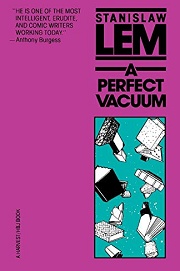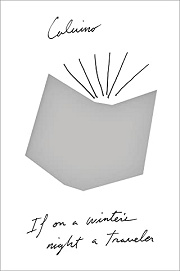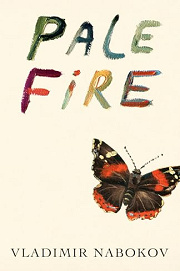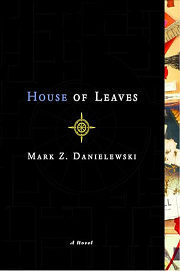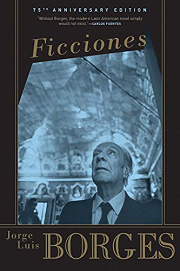Share your thoughts in a quick Shelf Talk!
A Perfect Vacuum by Stanisław Lem
Playfully profound and brilliantly strange, A Perfect Vacuum presents reviews of books that never existed—each a miniature universe of ideas. Stanisław Lem turns criticism into speculative art, dazzling readers who enjoy mind-bending concepts and sly intellectual games.
Have you read this book? Share what you liked (or didn’t), and we’ll use your answers to recommend your next favorite read!
Love A Perfect Vacuum but not sure what to read next?
These picks are popular with readers who enjoyed this book. Complete a quick Shelf Talk to get recommendations made just for you! Warning: possible spoilers for A Perfect Vacuum below.
In A Perfect Vacuum, did you enjoy ...
... self-referential play where the act of reading becomes the plot?
If on a winter's night a traveler by Italo Calvino
If what delighted you in A Perfect Vacuum was its mock-critical frame—the invented prefaces, pedantic footnotes, and the way the “review” becomes the real story—you’ll love how Calvino greets you with “You are about to begin reading Italo Calvino’s new novel,” then spirals into a chain of beginnings that constantly turn the pages back on your role as reader. Where Lem turns fake reviews into literature, Calvino turns the mechanics of reading itself into an adventure of false starts, missing chapters, and conspiratorial editors.
... a razor-edged parody of scholarly criticism wrapped around a nonexistent text?
Pale Fire by Vladimir Nabokov
If you enjoyed how A Perfect Vacuum skewers critics by letting their voices swallow the books they “review,” Pale Fire is a feast: a 999-line poem by John Shade paired with Charles Kinbote’s deranged commentary that hijacks the poem into an epic about the kingdom of Zembla. The joke—and the pleasure—is how the apparatus (foreword, notes, index) becomes the real narrative, much like Lem’s mock reviews become the main event.
... typographic labyrinths, footnotes-on-footnotes, and documents masquerading as scholarship?
House of Leaves by Mark Z. Danielewski
If the faux-academic textures of A Perfect Vacuum—especially the scholarly tone, argumentative endnotes, and invented citations—were your sweet spot, House of Leaves takes that formal play into a haunted maze. Zampanò’s academic study of “The Navidson Record,” Johnny Truant’s anxious marginalia, and the typographic acrobatics turn the page into a puzzle you physically navigate, echoing Lem’s pleasure in apparatus-as-story.
... idea-dense, standalone thought experiments delivered as crystalline short pieces?
Ficciones by Jorge Luis Borges
If you liked how A Perfect Vacuum serves up compact, self-contained conceits—each review a new universe with its own rules—Borges’s Ficciones is the ur-text: “Pierre Menard, Author of the Quixote” rewrites authorship itself, “Tlön, Uqbar, Orbis Tertius” lets an invented encyclopedia overtake reality, and “The Library of Babel” builds infinity from a catalog entry. Each story lands like one of Lem’s conceptual grenades, perfectly trimmed and explosively suggestive.
... rigorous thought experiments that pay off with lingering, mind-stretching insights?
Stories of Your Life and Others by Ted Chiang
If the high you got from A Perfect Vacuum was its cerebral click—the sense that each piece proves a theorem about books, minds, or systems—Ted Chiang delivers that same intellectual charge through fiction. “Story of Your Life” marries linguistic determinism with aching parental love, “Tower of Babylon” literalizes cosmology into engineering, and “Division by Zero” turns mathematical crisis into existential vertigo. The ideas reward slow, attentive reading the way Lem’s best mock-reviews unfurl on a second pass.
Unlock your personalized book recommendations! Just take a quick Shelf Talk for A Perfect Vacuum by Stanisław Lem. It’s only a few questions and takes less than a minute.
